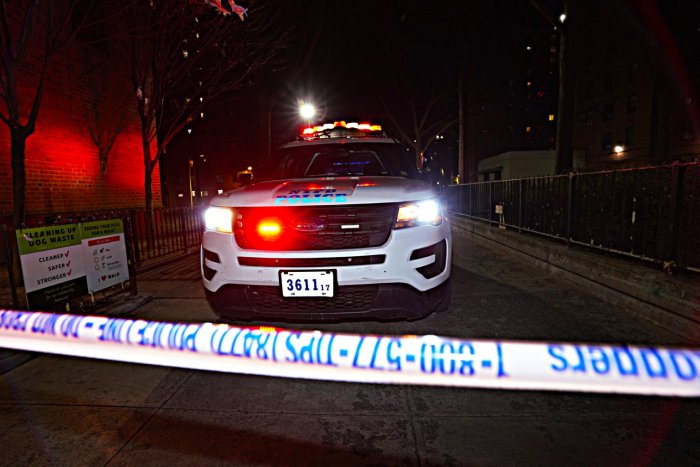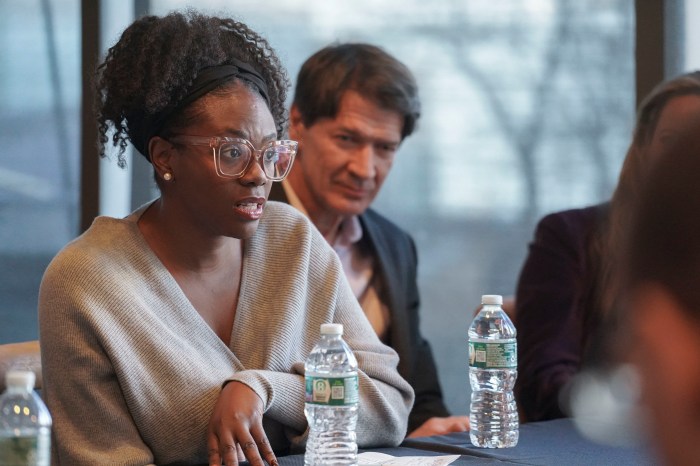By Howard Koplowitz
In an MTA LIRR scoping document, the agency said improvements are needed “to relieve congestion during peak travel periods, operational difficulties and insufficient reverse and intra-island commuting service.” As part of the project, the MTA will look at eliminating eight roadway grade crossings because of safety issues, the only portion of the plan that gained the approval of the community. Richard Hellenbrecht, chairman of Community Board 13, said there would be “no positive impacts” from service improvements for Queens Village and Bellerose since the main line only runs through the neighborhoods and does not have stops there. Hellenbrecht claimed that there have been fewer intrains passing through the area each day, from 100 in 1960 to nearly 61 today, according to the Floral Park group Citizens Against Railroad Expansion, or C.A.R.E. With the addition of a third track on the line, he warned that the residents of Queens Village and Bellerose would be subject to pollution, noises and vibrations from the trains thundering through the area to stops in Nassau County. Queens Village also could be affected by the proposal in that businesses operate in the right of way of the project, Hellenbrecht said. He also took issue with the fact that hearings were only scheduled on Long Island with none in Queens and demanded that LIRR officials hold public scoping hearings in Queens Village, a comment that drew considerable applause from the hundreds of the meeting's attendees. Peter Richards, chairman of CB 13's environmental committee, echoed Hellenbrecht's concerns, saying that the LIRR was “offending our Queens Village community by not notifying residents” about the hearings with proper notice. He called the LIRR “not neighborly” and “insensitive.” An LIRR video on the proposed improvements was shown, but Bellerose Deputy Fire Chief Charles Puglisi called the presentation and pamphlets that painted the project as beneficial to the community “propaganda.””These brochures were put together by the prince of darkness,” Puglisi said. Hellenbrecht said at the public hearing that the proposal put forth by the MTA was too vague to prompt appropriate commentary.”This is one of the worst scoping documents I've ever seen in my life,” he said.New Hyde Park Mayor Daniel Petruccio also thought the LIRR's plan lacked specificity.”Without knowing what is planned, we can't comment accurately with regard to environmental impact,” Petruccio said.Other reasons for opposing the plan were given by the mayors of Bellerose and Floral Park. Floral Park Mayor Phil Guarnieri said he does not want to see the new track built.”The village of Floral Park and its close neighbors are unmistakably… irrevocably opposed to an additional track,” Guarnieri said. Since the third track would be close to existing business and homes, the mayor said he is concerned about property values in the village if the LIRR was to go through with construction.”This ill-advised project will reduce these properties to near junk value,” he said.”It's not a question of in our backyard, its a question of enough in our backyard,” Guarnieri added, arousing thunderous applause.The mayor of Bellerose, Donna Sherrer, urged LIRR officials to consider alternatives to a third track such as constructing monorails and other environmentally-safe transportation. Reach reporter Howard Koplowitz by e-mail at news@timesledger.com or by phone at 718-229-0300, Ext. 173



































